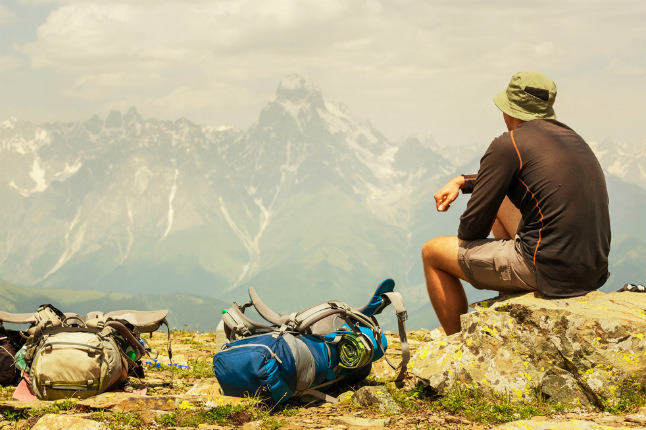7 Backpacking Tips For Beginners
Warm weather brings a sense of wanderlust and a yearning for adventure that's almost palpable. It's common to want to get out and explore and there's no better way to enjoy traveling and the great outdoors than by taking a backpacking trip.
From overnight outings to month-long excursions, countless adventurers have felt the rush of self-sufficiency brought on by carrying their necessities on their backs and sleeping under the stars. While backpacking might seem straightforward, experts will tell you that there's a lot that can and will go wrong. We've put together a few tips so beginners can avoid some of those mistakes.
Find a Friend
Backpacking alone can be risky for experts and it's downright dangerous for beginners. Find a friend for your first few trips (big bonus points if that friend has backpacking experience). A friend is great company, it's good to have two people eyeing the map and two sets of gear will help should either of you forget anything. Most importantly, though, in case of an emergency an extra person can get help or patch up injuries.
Start Small
Excitement is a great thing, but don't let it get the best of you. For your first overnight trip into the great outdoors you should limit it to one night or a weekend and be sure to have an out should you want to leave. You don't know if backpacking is right for you until you try it, but it's better to try it for two days instead of 10.
Fitness Matters
You might think that hiking is essentially just walking in nature and that you don't need to be in shape to take on a trail. That statement is, of course, not true. You can either get in shape or find out that you should have exercised as you take on a vicious climb with an extra 25 pounds of gear on your back.
Break in Your Boots
Even the most experienced backpackers have fallen victim to this one on their first trip. Taking boots out of the box and directly onto the trail is a great way to ruin an otherwise pleasant trip. It's tough to recover from painful blisters so be sure to work your boots in well before your first outing—and definitely be sure you've got the right fit.
Invest in the Gear that Matters Most
Expensive items aren't always the best, but generally you get what you pay for. If you're short on money you can land some budget buys in some areas—you don't need $220 trekking poles or the finest utensils right away—but know where to spend a little extra. Namely, you shouldn't be buying footwear, raingear, packs, tents and sleeping bags at discount big box stores. Go to a specialty retailer and be prepared to spend a few extra dollars for quality gear, you'll be happy you did.
Don't go Ultra-Light Right Away
Ultra-light backpacking is most definitely the trend and it's not hard to see why—who wouldn't like to lighten their load on the trail? But beginner backpackers should not try to cut weight so drastically for their first expedition. Cutting weight eliminates your safety net. Packing the right gear (including back-up items) and having the knowledge to use it could save you. Ultra-light backpacking is a goal you reach gradually through trial and error, not a good strategy for your first time out.
Leave No Trace
This ethical outdoors code is no joke. It is incredibly important to leave nature as you found it so that others can enjoy it just as you did. Familiarize yourself with the principles (some will surprise you) and follow the code so as not to disturb the animals, nature and environment in the area.
Related:
Backpacking with Monster Skeeters
Find the Perfect Fit in a Trail Running Shoe
30 Great American Hikes
